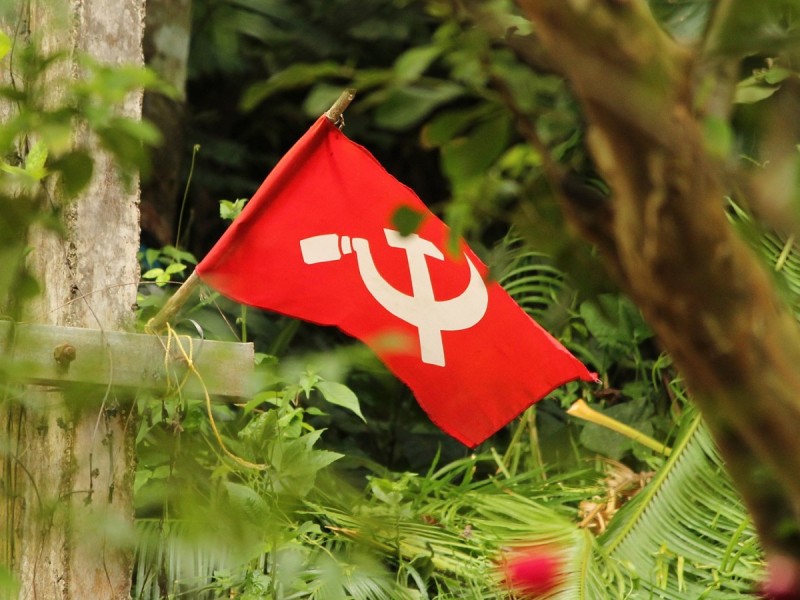Kerala’s social policies are the best prevention against future pandemics
Kerala has the lowest mortality rate of 0.6% among all states in India

With almost 35 million inhabitants, Kerala is the most stable and progressive state in India, with the highest literacy rate, a very high life expectancy and a high number of medical centres. Photo by Oscar Espinosa/Amalgama Project.
Since March 24, the second most populous country in the world, with 1.3 billion inhabitants, has been practically paralyzed due to the confinement imposed until May 3 to deal with the COVID-19 pandemic.
Kerala, India’s communist state, which is visited by more than a million foreign tourists a year and sends hundreds of students to study in China, has managed to flatten the curve with forceful measures. They activated controls at airports and train stations to detect the entry of the virus into the state, and established temporary quarantine shelters to lodge tourists and non-residents. This was followed by aggressive testing, contact tracing, long quarantine periods, shelters for migrant workers, and cooked meals for those most in need.
As of May 1, 902,654 tests have been performed in India, of which 35,042 positive samples have been confirmed, 8,888 have already recovered, 25,007 are still active cases and 1,147 people have died. In Kerala, with less than 3 percent of the country’s population, 25,973 tests have been carried out, 497 proved positive, of which 383 have already recovered. 111 cases are still active and there have been only three deaths.
The first coronavirus case in India was detected in Kerala in late January, and thereafter the state began testing and tracing contacts, quarantining and closely monitoring people. The state took the lead in deploying rapid test kits at critical points to control spread in the community.
With almost 35 million inhabitants, Kerala is the most stable and progressive state in India, with the highest literacy rate, a very high life expectancy and a large number of medical centres. This is where the first democratically elected communist government in the world was formed, when in 1957 the Indian Communist Party won the elections. Since then two left-wing coalitions have alternated power.
Their ability to react effectively to the health emergency derives in part from the lessons learned in the wake of the Nipah virus two years ago and their strong primary health care network that has been developed over the years.
In 2018, there was an outbreak of the Nipah virus, with no treatment or vaccine available, and that shook the state’s health system, leaving 17 dead in a month. The government then implemented various measures and protocols that would serve to manage other epidemics of unknown pathogens in the future, and that have allowed it to react in a timely way to COVID-19. The contact tracing protocol used in the current health emergency was actually designed in response to the Nipah virus
The state deploys its resources to locate all the contacts that infected people have had in the 14 days prior to the onset of symptoms, they are quarantined in their homes and during the incubation period they are monitored by phone every day in the morning and at night. If any of the quarantined patients report any symptoms, they are presumed to be positive and are transferred to medical centres equipped with isolation rooms to be tested. There they remain in isolation until their test results are negative, and if they test positive, the cycle begins again, identifying all their contacts from the 14 days prior to symptoms, followed by quarantine and monitoring at home.
A communist flag in Kanjirappally, Kerala. Photo from Wikimedia Commons.
In addition, Kerala’s efficient primary health care system owes its existence to various initiatives over the years. Programs like “Aardram,” an ambitious plan to restructure and modernize the public health system to make government hospitals more user-friendly and efficient, have made it possible for the state to provide an optimal level of health care during the COVID crisis.
Another program that has been key to managing the crisis has been the “Kudumbashree,” implemented 23 years ago as a community organization of neighborhood groups to eradicate poverty and empower women, and which has worked closely with local government and created an extensive network at the local level.
Since the first case of coronavirus was detected in Kerala, more than 1,200 community kitchens have been set up through this network, where meals are prepared for home delivery to those in quarantine, as well as to needy people and migrant workers.
One of the most viewed images in recent weeks has been the one of thousands of migrant workers fleeing big cities to return home. Roughly 470 million internal migrants in the country have been trapped far from their homes without any income to survive on. But Kerala has not experienced these scenes of despair. The state prevented the stampede of migrant workers and the potential spread of the virus by ensuring their well-being through the provision of food, shelter and access to healthcare.
Kerala has the largest number of migrant worker camps in the country, with 18,912 camps lodging more than 300,000 migrant workers. They are provided with food three times a day, as well as tea and cookies throughout the day. The state has set up 14 mobile clinics, staffed by doctors and nurses, which move from camp to camp to carry out regular health checks. A call centre has also been established to respond to the concerns of migrant workers; it offers assistance in five languages: Hindi, Bengali, Hate, Assamese and Garwahli.
The state of Kerala has also sought to give migrant workers other means to cope with their confinement, by installing televisions in the camps, for example, and providing indoor games such as carrom and chess, as well as recharging mobile phones so the workers can remain in contact with their families.
Although Kerala has managed to flatten the curve and limit the transmission of the virus for the moment, the state is suffering the consequences of the strict economic lockdown imposed throughout the country. There is already talk of relaxing some of the confinement measures to allow for the resumption of normal economic activity, but without abandoning all the preventive and social distancing measures needed to avoid another wave of infections.
What is clear is that thanks to the social policies that Kerala has adopted in recent decades, the state is in a good position to deal with the kind of health crisis we face with COVID-19.
Laura Fornell is a writer involved in the Amalgama Project, together with the photojournalist Oscar Espinosa. Follow them on Twitter @AmalgamaProject.










